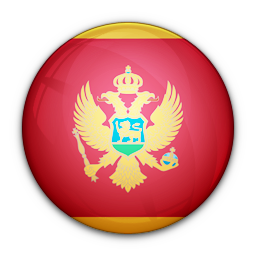
Montenegro
Regional group:Eastern European Group (EEG)
Council member:
|
|
|||||||||||||||
| National Mechanisms for Implementation, Reporting, and Follow-up (NMIRF): Unknown | ||||||||||||||||

|
|
|||||||||||||||
| National Mechanisms for Implementation, Reporting, and Follow-up (NMIRF): Unknown | ||||||||||||||||
The role of freedom of opinion and expression in women’s empowerment; Strengthening efforts to prevent and eliminate child, early and forced marriage; Promoting reconciliation, accountability and human rights in Sri Lanka.
During HRC general discussions, panel debates and interactive dialogues with the Special Procedures, during the past three years, either as an HRC member or not, the State has joined:
Regional
group statements
Subregional
group statements
Political group
statements
Cross-regional
group statements
Other joint
statements
Overall, as a HRC member, has participated in more than 10% of panel discussions, general debates and interactive dialogues.
 Cooperation with international human rights system
Cooperation with international human rights systemLongest visit request not (yet) accepted by the State >
CAT
ICCPR
CED
CEDAW
CERD
ICESCR
CRC
CRPD
 Most overdue report
Most overdue report
Ratified
NPM established
 Fulfilment of past voluntary pledges & commitments
Fulfilment of past voluntary pledges & commitments Montenegro tabled an aide memoire on its candidature for membership for the period 2013-2015, on 11 June 2012.
Internationally, Montenegro pledged, inter alia, to: fully cooperate with the Council and its mechanisms;
cooperate with and support the activities of OHCHR; contribute to the improved efficiency and effectiveness of the Council; cooperate with and fully participate in the UPR; promote the implementation of human rights norms at home and abroad, and include all relevant domestic actors in the process of implementation; work to ensure that the Council responds robustly to human rights violations and emergencies; find innovative ways to promote effective mainstreaming; strengthen cooperation between the Council and civil society, NHRIs and regional organisations; support Council initiatives on combatting racial, religious and other intolerance; promote interreligious and intercultural dialogue and therights of minorities; and submit regular reports to the Treaty Bodies.
Domestically, Montenegro committed, inter alia, to: implement laws and policies to combat violence against
women, including domestic violence; and take forward a project on the legal recognition of same-sex relationships/marriage in Europe with the aim of suggesting ways to proceed in Montenegro.
An analysis of steps taken by Montenegro in fulfilment of its international level pledges shows that it is yet to
submit half of its periodic reports to the Treaty Bodies. Montenegro contributes to a majority of the Council’s
panel discussions and general debates. In terms of cooperation with Special Procedures, Montenegro maintains a standing invitation and has completed all visit requests. Regarding the UPR, Montenegro participated at a high level (ministerial) and undertook efforts to increase its engagement with the UPR (it went from presenting recommendations to no other State during the 1st cycle to presenting recommendations to 145 States during the 2nd cycle).